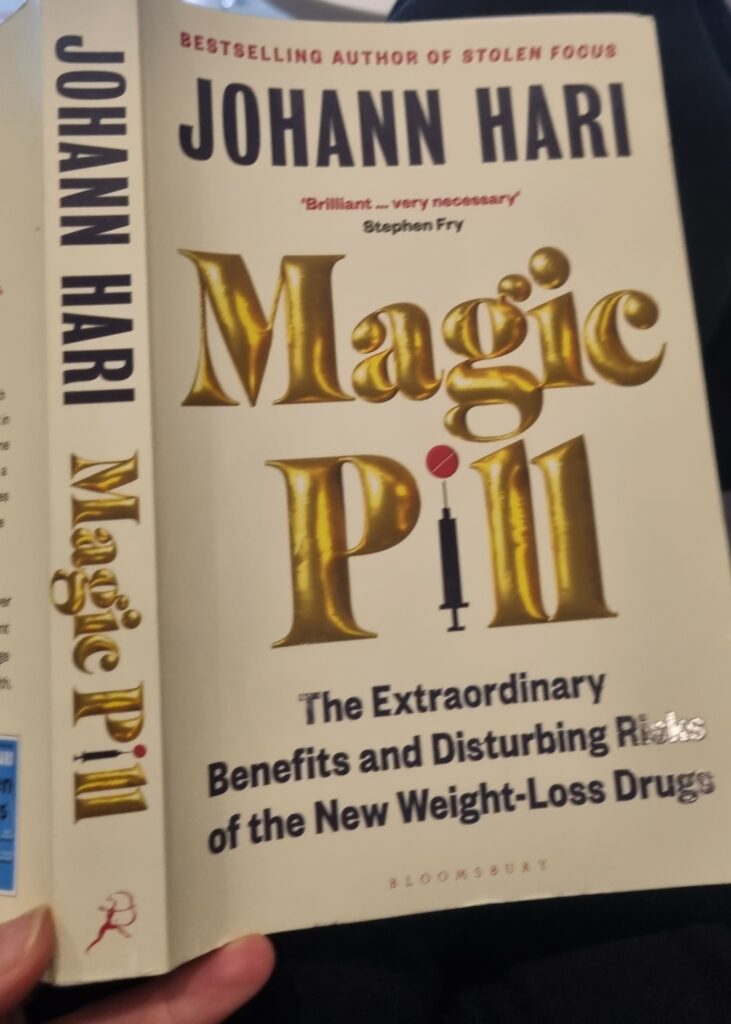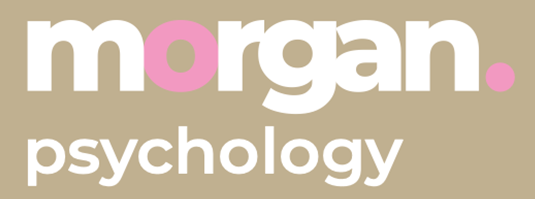Ozempic: Navigating eating disorder recovery during the unprecedented rise of weight loss drugs

Ozempic has infiltrated my therapy room
It’s frustrating, but all too familiar.
Every diet, every weight loss and exercise “revolution” will walk briskly towards my therapy room, open the door (without knocking), and take a seat. Usually at some pivotal point, when recovery is still a delicate dance. The latest fad will dial up the volume of the eating disorder voice and dial down the quiet hope of recovery. It comes beautifully packaged. Now it is delivered to your door.
Ozempic arrived in my therapy room over 2 years ago. It looks like it is going to stick around. Sigh.
Ozempic has also invaded my personal life – a friend whispered to me that she had started the drug, shrouded in shame, and explaining “people think it should just be for diabetics. I just need some help. I’ve tried so many things to lose weight. There are some side effects… nausea, constipation, but it’s working.”

“Magic Pill: The Extraordinary Benefits and Disturbing Risks of the New Weight Loss Drugs” – by Johann Hari
I love reading on planes. The confined space is an antidote to my boundless energy. I had forgotten my book on a recent trip, so I head to the airport bookstore. My daughter points to a shelf – “there you go mum, Magic Pill, the book you wanted to read”. I was introduced to author, Johann Hari, by my dad, who recommended Hari’s book “Stolen Focus”. I am delighted to see it is Hari who has tackled this topic.
Beautifully written, the book explores, without judgement, the unprecedented rise of Ozempic and weight loss drugs and invites the reader to think about how we got here. The book articulates a complexity about the obesity crisis and eating disorders that I have been grappling with. In Hari’s search to find answers about the risks and benefits of the new drugs, he reaches the more difficult conclusion that, well, it’s really complicated… especially when it comes to eating disorders.
There are times while reading that I feel deeply uncomfortable, such as when Hari describes clinical trials of semaglutide in children as young as 6 years. His description of a young boy who cannot complete his dream of climbing a mountain due to obesity, stays with me long after I finish reading. Hari beautifully describes young Japanese children who don adorable chef’s hats and distribute a shared meal for their peers while explaining the health benefits of each element of the dish. A meal is enjoyed together at every school lunch. I am incredibly moved about how valued health and nutrition are in Japanese culture. How did we get to fast food being delivered to our couches?
Hari’s book embodies a discomfort that I saw in my friend, that I see in clients who want to skip cognitive behavioural therapy and just take the pill, and that I have felt internally about the dialogue that any body size is healthy whilst simultaneously wanting to scream about the dangers of these drugs for clients with eating disorders.

Can I tell you a story? My conversation with an online prescriber of weight loss drugs
I read half the book on my flight and just a day later find myself in an unusual position – I have the opportunity to talk to one of Australia’s largest online prescribers of weight-loss medications. I introduce myself as a clinical psychologist who specialises in the treatment of eating disorders. I feel uncomfortable and notice he is too, but he also seems open. I start by asking, “can I tell you a story?”
I tell him about a client who engaged beautifully in treatment and did well. When she returned for her routine follow-up appointment, she quietly disclosed that she was going to start Ozempic, which had been prescribed online. Every bone, breath, emotion, thought, and muscle in my body wanted to jump up onto my therapist soapbox and yell “Nooooooo…!!!”.
Instead, I took a deep breath and asked her to talk me through how she had moved from body acceptance to being prescribed Ozempic in just 3 months. She explained that she saw an advert, and it was just so easy. No video call, just email correspondence, no verification of her weight, eating disorder history or past substance misuse. The drugs would be delivered, beautifully packaged, for $800 per month!!
I tell her I wish I could package cognitive behavioural therapy like that and deliver it to her door, and she laughs. At the end of the session, she changed her mind and instead booked some sessions to get back on track. Eating disorder recovery-1, Ozempic-0.

How did we get from “FOOD IS MEDICINE” to “medicine can replace food”?
“Food is medicine” is something I tell clients often. You need to take it regularly, at the right dose, throughout treatment. But the weight-loss drugs are screaming the opposite – that “medicine can replace food”. I can’t help but think that evidence-based eating disorder treatments are in an impossibly unfair marketing competition against a beautifully packaged, magic pill promising health over obesity. The medications are literally delivered to your door.
The reality of eating disorder recovery is this. You will likely feel worse before you feel better. Every step will take courage. Recovery is not linear, so you will take some steps forwards, and then some to the side and then some backwards, before going forward again. You will need to learn to eat differently – regularly, adequately and to start including food you are scared of. No professional can guarantee what will happen to your body and weight. On average, in outpatient treatment, weight stays about the same if it starts in the typical range. You might lose a small amount (say 5%) if you are in the overweight range – again, no guarantees. You will definitely need to regain weight if you are underweight. The primary pursuit of weight loss is incompatible with eating disorder recovery so you cannot focus on trying to lose weight and recover at the same time. I promise to have a conversation about weight loss later, but I hope that you won’t need it. We need to treat the mental illness – the eating disorder – first.
Recovery also requires that you somehow manage to find your way from internalising socio-cultural ideals about body weight and shape to starting to challenge these ideals and then, finally, inoculating yourself from your own society – a society that incentivises both weight loss and over-consumption in the same breath. This is likely to sound like a fragile voice in an echoey, empty tunnel, calling out “hey, this cultural obsession with weight is not okay, you contributed to me becoming unwell, you need to do better…”.

Can eating disorder specialists and the weight loss industry meet in the middle for helpful discourse?
So here I am telling this story to the very company that prescribed the drug to my client. I am telling them that every week, clients with eating disorders are coming to me with similar desires for the magic pill to weight loss. Especially clients who have been living with the internalised shame and stigma of existing in a larger body.
I am surprised by how many similarities there are between our respective treatments (I might come back to that in another post). I am even more surprised about the level of mutual discomfort in the conversation, and his genuine relief and care when I mention we diverted this single individual away from the drug. He informs of the new protocols in place requiring video call and assessment of eating disorder history. I fear this is not enough, unless delivered by eating disorder specialists, but it is at least a step.
It is easy to vilify the prescribers of weight-loss medications and point fingers at general practitioners who use body mass index as an indicator of health, blaming them for not adopting a health at every size approach. It is harder to come together in the uncomfortable, messy middle and start a conversation that recognises that eating disorders and obesity are complex, and they interact.

How can mental health clinicians help individuals with eating disorders navigate this complex landscape?
My voice is a quiet one against the tidal wave of Ozempic. But I am writing in the hope that I can dial up the volume, even just a little, on this issue. Minimally, we need to create better safeguards for clients with current, historical, and future eating disorders against the risks of weight loss medications. We also need to acknowledge that there is an obesity crisis – that requires action too.
What would I like to see for prescribers of weight loss medications to safeguard individuals with eating disorders?
- Understand that anyone in any body size or shape, at any age, of any gender, and from any culture, or socio-economic background might have an eating disorder
- Recognise that an eating disorder is a serious mental illness
- Screen for past and current eating disorders through medical and psychological assessments – these should be delivered by eating disorder specialists, prior to prescribing weight loss medications
- If an eating disorder is present, refer the individual for specialist eating disorder treatment. This must precede any referral for weight loss intervention
- We need stronger warnings about the risks of these drugs for people with eating disorders – clearly labelled, not in tiny fine print in the little pamphlet that no-one reads, but in BIG BOLD print
- Regular, in-person physical and mental health monitoring for anyone prescribed these medications
- Hari concludes that weight-loss drugs should not be prescribed online, due to the risks for individuals with eating disorders
We also need to create a better culture of eating and food consumption that disincentivises the fast-food industry. I am reminded by Hari that Aboriginal Australians were deemed to have one of the healthiest diets in the world, prior to white invasion.

I am a realist but I remain hopeful
I am not an expert on weight loss medications. I do have many years’ experience working with clients who have battled eating disorders. Eating disorders are serious mental illnesses, that persist in having one of the highest mortality rates of any psychiatric illness, second only to opioid addiction.
I am a realist, but I remain hopeful that eating disorder specialists and people with lived experience can have better discourse about the impact of the weight loss industry on eating disorders, with those who profit from the weight loss industry. I remain hopeful that the weight loss industry will be open to these conversations. When I have had open, non-judgemental conversations with clients about weight loss drugs, they have courageously chosen to stay on the recovery path – at least for now.
If you are considering weight-loss drugs (and don’t have an eating disorder), talk to your medical practitioner, read Hari’s book, and make up your own mind. It is important to understand that weight-loss medications are for life. We don’t know exactly how the medications work. We definitely don’t know the long-term risks. You may lose the joy of eating. You will still need to work on yourself as a person.
If you have an eating disorder, these medications are not for you. Try an evidence-based recovery program. Eating disorder recovery is hard. There will never be a magic pill. We are working to make the treatments more engaging, easier to access, and beautifully packaged. We will never be able to compete with the marketing budgets of the weight loss industry. If you make it to the end of treatment, it is likely that you will have a good outcome. There is always hope, no matter how long you have struggled.
If there is one statement that I hear over and over again, when people reach the end of eating disorder treatment, it is this… “I feel lighter”.
That seems worth fighting for.
The opinions in this article are personal and are not intended as a substitute for professional medical advice, assessment or treatment. If you live in Australia and have concerns about an eating disorder or other mental health issues, supports are available through Butterfly Foundation Support for Eating Disorders and Body Image Issues | Butterfly Foundation and Lifeline Lifeline Australia – 13 11 14 – Crisis Support. Suicide Prevention.
